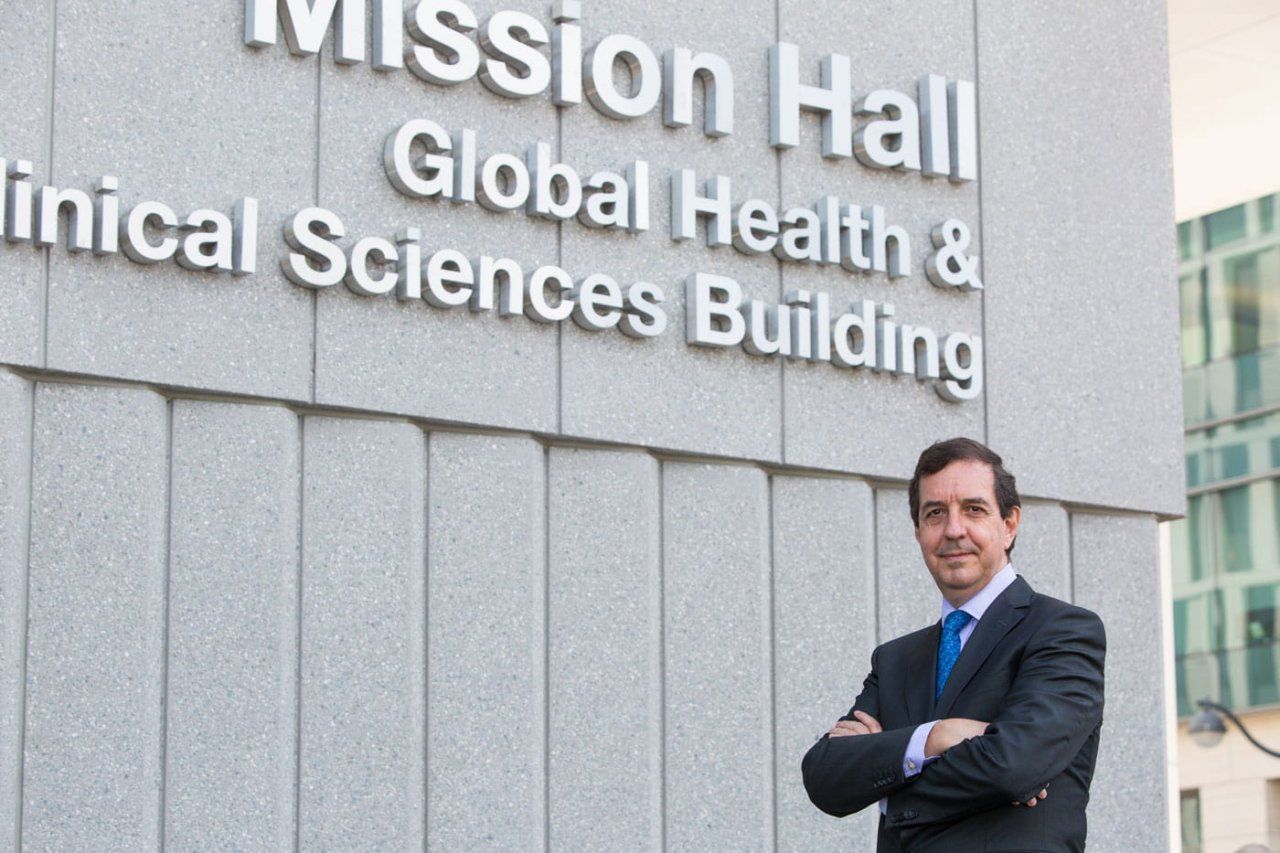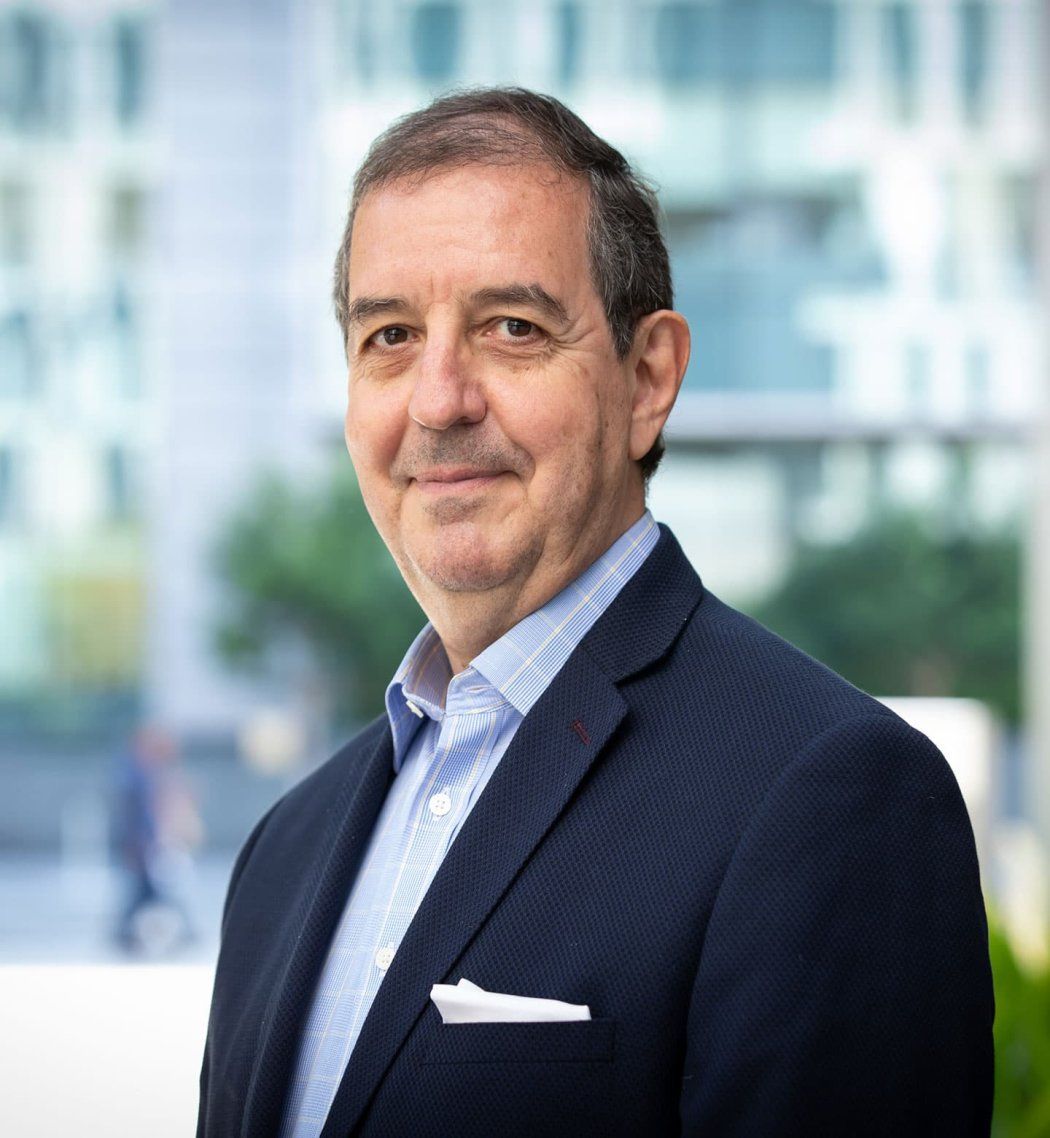As Jaime Sepúlveda, MD, MPH, DrSC, prepares to step down in August 2023 from his position as executive director of UC San Francisco’s Institute for Global Health Sciences (IGHS), he says that one event stands out for him from his 12 years in the role.
“I wanted a physical space in the new campus of Mission Bay for faculty, staff and students to collaborate, and was given the green light to build what is now Mission Hall, if I could I figure out how to get half the funding,” Sepúlveda recalled. “Chuck Feeney, a wonderful philanthropist and friend of UCSF, agreed on a Friday to contribute $20 million – but he was in Ireland and the UC Regents meeting was on Monday.”
Two and a half days and eight time zones later, Sepúlveda brought a signed commitment to the Regents, with just minutes to spare. It was the first of many successes at UCSF that created the conditions for excellence and will ensure that the Institute continues to thrive.
“Jaime put UCSF solidly on the map as a world center in global health,” said UCSF Chancellor Sam Hawgood, MBBS. “His deep understanding of health issues and policy, his spirit of collaboration, and his ability to approach problems creatively have helped unify the many and diverse areas of UCSF’s work in global health into a powerful and cohesive whole.”
Investing in People and Education
Sepúlveda joined UCSF after a significant career in public health, including a quarter century in his native country of Mexico in roles such as chief epidemiologist, vice minister of health, dean of the school of public health, and commissioner of the National Institutes of Health. In 2007, he visited UCSF for a nine-month sabbatical as part of the UCSF Presidential Chair Award. He left to join the leadership team at the Bill & Melinda Gates Foundation, until UCSF drew him back as executive director of Global Health Sciences in September 2011.
“I chose to come back to UCSF because I love the people here, I love the institution and I love this city,” he said.
Sepúlveda says he’s most proud of three things during his time at IGHS: hiring great people, creating a space for collaboration, and securing the support needed for important projects.
I chose to come back to UCSF because I love the people here, I love the institution and I love this city.
A “fantastic group of senior leaders” had built a strong foundation before he arrived: Haile T. Debas, MD, UCSF chancellor emeritus and the founder of UCSF’s Global Health Sciences program in 2003; Richard Feachem, DSc, PhD, who founded UCSF’s Institute of Global Health in 1999; and George Rutherford, MD, who created an organized research unit as part of Global Health Sciences.
With this scaffolding in place, Sepúlveda recruited top-notch faculty in areas including maternal health, diplomacy, global surgery, global nursing and pandemic preparedness, who were in various stages of their careers.
“We rejuvenated our program so that, instead of being such a male-dominated field, it became more mixed in terms of gender, generation and geographies, both in our leadership teams, and in our staff, faculty and learners,” he said.
The Institute also deepened its educational reach. The Masters in Global Health program, created some 15 years ago, was the first in the country, and UCSF became the second university in the nation to offer a PhD degree program in Global Health Sciences.
“We now have our fifth cohort of PhD students, and already so many of our students are taking important positions in high-level places,” Sepúlveda said. “It’s one of the things I feel proudest about.”
Collaborative Space for Growth
In 2007, the Global Health Sciences program had a small office at the Laurel Heights campus and two rented floors in a building downtown where students took classes. There was no library or access to common spaces. That, he said, was inadequate at best. “I wanted people to gather and have common areas to study, interact and work.”
By consolidating several leases and drawing additional outside funding, the program was able to gain approval for the construction of Mission Hall.

“The idea was to bring people together who were all over San Francisco, in the fields of pediatrics, obstetrics and gynecology, epidemiology and biostatistics, to be co-located at Mission Hall. I felt strongly that Mission Bay was a place to flourish,” said Sepúlveda. “We broke ground on my birthday, March 22, 2012.”
A few years later, Global Health Sciences would become a formal institute focused on research, education, service and health delivery, incorporating the best of basic, social and applied sciences to improve health and reduce inequities worldwide. Since then, the institute has grown into a global research enterprise of more than 1,000 UCSF investigators working in 190 countries.
Expanded Scope of Global Health
Under Sepúlveda’s watch, IGHS also broadened its scope to non-communicable diseases, such as diabetes, mental health and climate-related illness, that have come to affect many more people worldwide than infectious disease. These efforts include initiatives to reduce the impact of adverse childhood experiences and conduct research and policy analysis on how to engage global health leaders as advocates.
In 2014, with support from the Bill & Melinda Gates Foundation, the Institute launched an ambitious initiative in East Africa to combat pre-term birth, which is responsible for about 40% of deaths in children under age 1 worldwide.
“Back then, global health was mostly about the Big Three: HIV, malaria and tuberculosis,” Sepúlveda said. “This was a novel perspective, to focus on non-infectious disease.”
The institute also pivoted fast during the COVID-19 pandemic to create the Center for Pandemic Preparedness, in partnership with the city and state departments of public health, to help health professionals follow best practices in health care, testing and communication.
Into the Future
Sepúlveda plans to remain at UCSF to teach and focus on the parts of global health he feels most passionate about.
“I’d love to concentrate on pandemic preparedness and humanitarian health response,” said Sepúlveda. “And I want to work more in Latin America, a region that I think could use some more attention from the global health community.”
In the short term, he’ll help IGHS celebrate its 25th anniversary event in 2024, where the focus will be the Future of Global Health.
“We’ll be bringing in some of the best minds to think about what global health is nowadays – how to de-colonize it, how the funding should work, how much should go to pandemic preparedness versus other things,” said Sepúlveda. “It’s a fascinating time and we want to keep being the leaders in thinking through what the future holds.”

